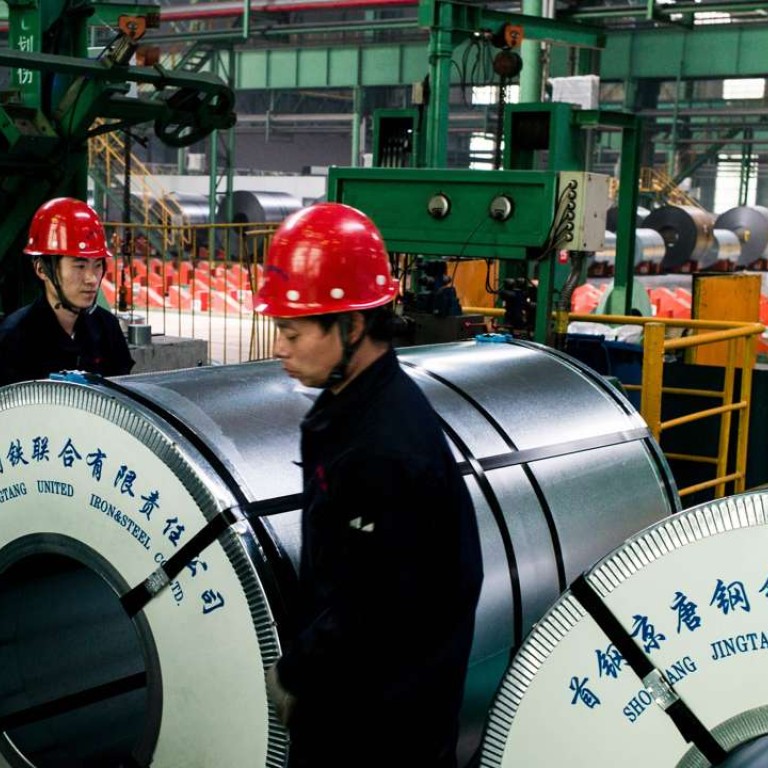
April data points to sustained weakness in China’s economic recovery despite stimulus
The disappointing news underscores the persistent slowdown in growth in the world’s second biggest economy
China’s April economics indicators pointed to a sustained weakness despite Beijing’s stimulus measures, with industrial production, investment and retail sales data released yesterday all missing market expectations.
Factory output growth for last month slowed to 6 per cent year on year from 6.8 per cent recorded a month earlier, falling short of economists’ estimates of 6.5 per cent, according to the National Bureau of Statistics.
Fixed-asset investment in the January to April period rose by 10.5 per cent year on year, compared with an annual advance of 10.7 per cent for the first quarter. Economists had forecast a growth of 10.9 per cent for the period.
The disappointing data – weighed down by slackening performance in traditional sectors – underscored the persistent slowdown in growth in the world’s second biggest economy, following stellar March readings which suggested that Beijing’s monetary easing efforts were bearing fruit.
“The mining and energy-intensive industries have seen a more severe slowdown in their productions,” the bureau’s senior statistician Jiang Yuan said. “Specifically, overcapacity-hit steel and coal sectors registered a drop in their April [output] figures.”
The mining and energy-intensive industries have seen a more severe slowdown in their production
China’s excess capacity now exceeds the total production of Japan, the US and South Korea combined. With such a glut, prices have plummeted, leaving many steelmakers worldwide in an difficult position. The demand from overseas continued to be lacklustre, Yang added, as annual exports growth for April slid sharply by 14.6 percentage points from March.
“All the engines suddenly lost momentum,” said Zhou Hao, an economist at Commerzbank in Singapore. “The policy tightening will be only a short-term phenomenon.”
Fixed-asset investment growth was also dragged down by the sectors stuck with overcapacity, despite upbeat performances in the high-tech services sectors, the bureau said in a statement.
Wang Baobing, senior statistician with the bureau, raised concerns over a sustained deceleration in private fixed-asset investment, warning that such momentum would threaten the country’s overall investment activity.
All the engines suddenly lost momentum. The policy tightening will be only a short-term phenomenon
Retail sales growth also pulled back, standing at a weaker-than-expected 10.1 per cent for April from the previous year, down from year-on-year growth of 10.5 per cent in March, according to the bureau. A significant drop in car sales growth was blamed by the authorities for the slower growth in retail spending, with a 5.1 per cent increase from a year earlier compared with a 12.3 per cent increase in March, the bureau said in a statement.
The property sector, however, served as a rare bright spot, with housing sales rising 61.4 per cent year on year during the January to April period versus an annual increase of 60.3 per cent for the first three month. The improved readings were helped by a sharp jump in home prices in some major cities, the bureau said.
For the January to March period, the economy expanded by 6.7 per cent from a year earlier, its slowest quarterly pace since 2009.
Earlier this week, People’s Daily article quoted an “authoritative source” who said economic growth was set to enter a so-called L-shaped trajectory for a few years and it was unrealistic to expect any rebound in the economy.
With additional reporting by Bloomberg

